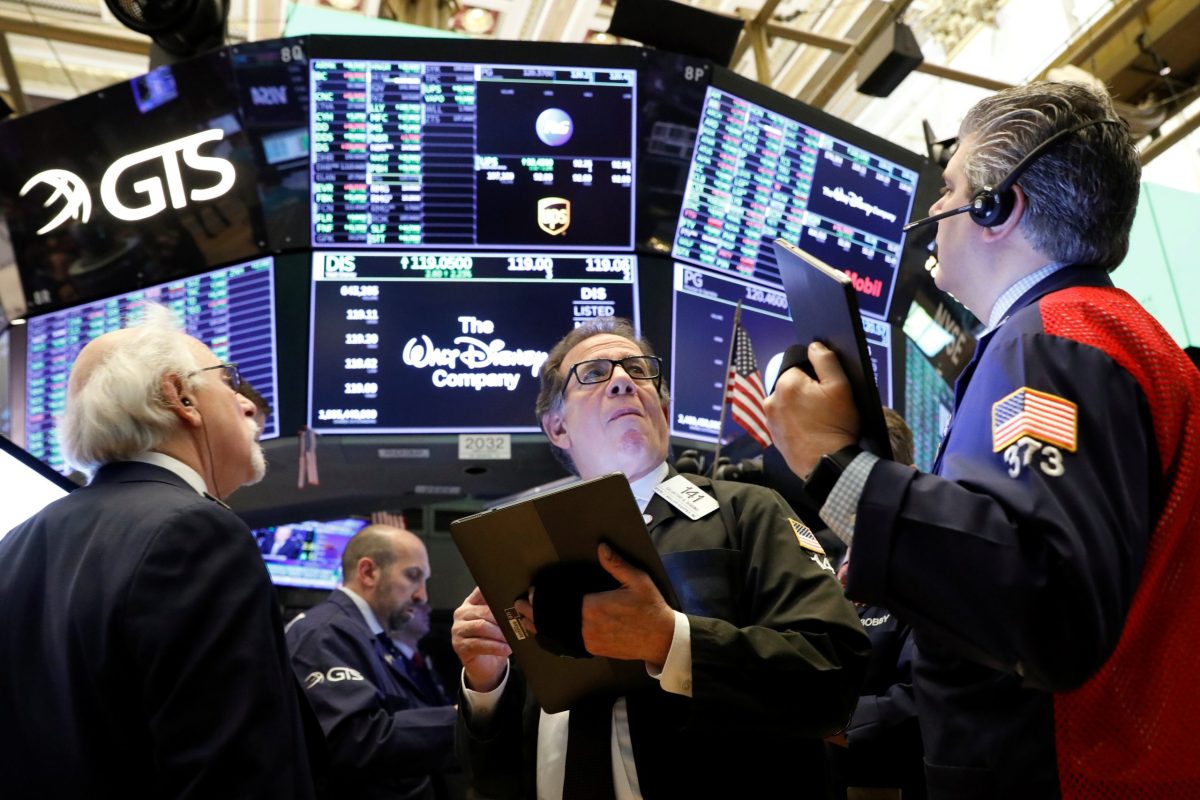BY MEDHA SINGH AND SANJANA SHIVDAS
Wall Street surged on Wednesday, with healthcare stocks providing the biggest boost after Joe Biden overtook Bernie Sanders to become the new front-runner in the race for the Democratic presidential nomination.
The benchmark S&P 500 <.SPX> rose for only the second time in 10 days, taking back more than half of a nearly 3% slide in the previous session, when an emergency interest rate cut by the Federal Reserve served only to amplify concerns about the economic damage of the coronavirus outbreak.
All three main U.S. indexes remained firmly in correction territory, down more than 10% from recent highs, and a string of analysts stressed there was probably more trouble to come as the outbreak continues to worsen in countries outside China.
“Today is a Joe Biden relief rally and an awareness that Bernie Sanders may not be the potential threat to the U.S. economy and markets,” said Eric Schiffer, chief executive officer of the private equity firm, the Patriarch Organization.
Shares of health insurers have suffered for months as self-described socialist Sanders and his “Medicare for All” proposal, which would eliminate private health insurance, gained credence.
UnitedHealth Group Inc <UNH.N>, Centene Corp <CNC.N>, Humana Inc <HUM.N> and Cigna Corp <CI.N> all surged more than 10% on Wednesday. The broader healthcare <.SPXHC> index jumped 3.4%, the most among major S&P sectors.
At 11:38 a.m. ET, the Dow Jones Industrial Average <.DJI> was up 508.70 points, or 1.96%, at 26,426.11, the S&P 500 <.SPX> was up 47.22 points, or 1.57%, at 3,050.59. The Nasdaq Composite <.IXIC> was up 119.84 points, or 1.38%, at 8,803.93.
WILD LIFE
In a wild run for stocks, fears of a global slide into recession, and a resulting collapse in U.S. corporate earnings this year, have knocked $3.1 trillion off the value of major U.S. companies in the past 10 days.
Rate-sensitive bank <.SPXBK> stocks were again weak, down 0.1% with the benchmark Treasury 10-year yields holding below 1% as investors continued to buy bonds on the assumption the Fed will have to cut again.
“Things are going to get a lot worse before they get better,” Schiffer said, adding that “the coronavirus is the single biggest modern threat to global growth since the recession in 2008-09.”
U.S. food company Campbell Soup Co <CPB.N> rose 6.7% after lifting its 2020 profit forecast, and topping analyst estimates for the quarter on improved demand for its soups. They are one company traders are watching for signs of hoarding by consumers.
Upscale retailer Nordstrom <JWN.N> slid 4.9% after forecasting a 2020 profit largely below market expectations.
Investors will also look to the Fed’s beige book report, which will offer the first snapshot from the central bank’s business contacts on how deeply the coronavirus is impacting the domestic economy.

































